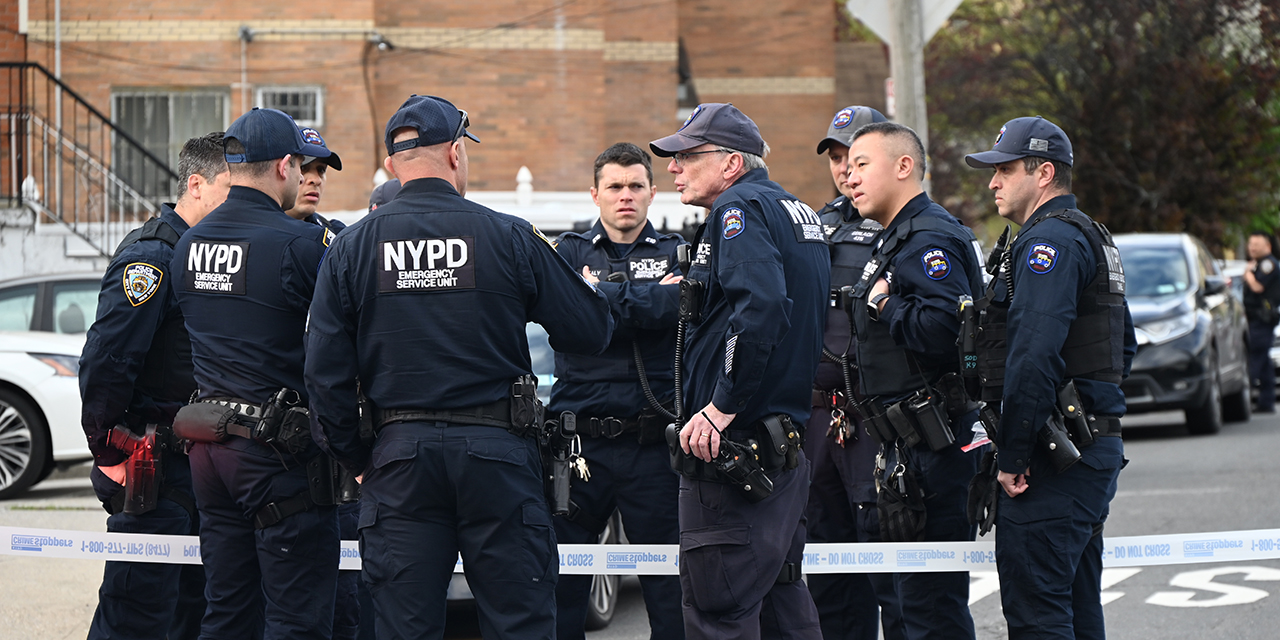The death of George Floyd in the custody of a Minneapolis police officer set off a firestorm of calls for police reform. Witnesses captured the scene with their smartphones, enabling the world to watch video of an officer pinning Floyd to the ground, with a knee to his neck, for nearly nine minutes.
Reformers are calling for broad changes. Many of the contemplated reforms—such as making it easier to fire problem officers—are meant both to protect citizens from police brutality and to protect the vast majority of police officers who serve honorably from having their reputations tarnished by the conduct of a few.
These efforts could prove meaningless, though, in states like Illinois that give public-employee union contracts greater power than state law. Buried deep in the Illinois Public Labor Relations Act, which gives collective bargaining power to police unions, is Section 15, entitled “Act Takes Precedence.” Section 15 explicitly provides that when a government-union contract conflicts with any other law or regulation, the contract prevails.
It would be unthinkable, in any other context, to permit an agreement negotiated by unelected third parties to trump state law—but that’s exactly what Section 15 demands. Illinois could enact the best police reforms in the nation, but those reforms won’t matter if they run contrary to a police-union contract.
Union power has played a major role in how investigations of these matters are handled in Illinois—particularly in Chicago, which has seen its share of police misconduct. In October 2014, Chicago police fatally shot 17-year-old Laquan McDonald on the city’s southwest side. The officer involved, Jason Van Dyke, claimed that he fired in self-defense. Dashcam video proved otherwise. Van Dyke shot McDonald 16 times as the young man was walking away.
The incident triggered a year-long investigation by the Justice Department and the U.S. Attorney’s Office for the Northern District of Illinois. Their final report rebuked the Chicago Police Department for failing properly to investigate and discipline officers engaging in misconduct. While the report included recommendations for reform, it also noted stipulations in the police-union contract that stood in the way. Some of the most egregious provisions relate to CPD’s internal-investigation processes. These rules dictate which complaints get investigated and skew the investigations that do occur. Federal prosecutors looked at 30,000 CPD misconduct complaints. Half were never investigated; 98 percent were closed with no disciplinary action taken.
One contract provision prohibits the investigation of anonymous complaints, with few exceptions. Citizens must provide signed affidavits with their claims. Immediately before the interrogation of an officer under investigation, the officer is told—in writing—who filed the complaint and the nature of the complaint. The Department of Justice found that this requirement “creates a tremendous disincentive to come forward with legitimate claims and keeps hidden serious misconduct that should be investigated.” In a significant number of incidents, Chicago police officers intimidated potential complainants to stop them from filing misconduct claims. This rule has a chilling effect on citizens with legitimate grievances and discourages upstanding officers from speaking out, effectively enshrining the police “code of silence” into the contract.
Chicago’s police contract includes provisions that prejudice internal investigations. For example, accused officers are permitted to review video or audio evidence related to the incident in question and can modify or amend any statements they made prior to reviewing it. Other provisions allow for destruction of records after a certain period—so if an officer has a history of bad behavior, prior incidents may not even be considered. Accused officers can refuse to take polygraphs; even if they agree to sit for one, the complainant must take one first.
Section 15 gives each of these provisions the power of state law in Illinois—or rather, more power than state law. These rules cannot be overcome legislatively. Real reform would require striking down Section 15 as it applies to police officers and enacting limits on what can be negotiated into a collective bargaining agreement.
If the Illinois General Assembly won’t make those changes, local leaders—including Chicago mayor Lori Lightfoot—can at least refuse to negotiate problematic provisions into future contracts. Put a union contract on one side of the scale and police reform on the other. Does anyone believe that the scale should tilt toward a private interest over the public good?
Photo by Scott Olson/Getty Images





